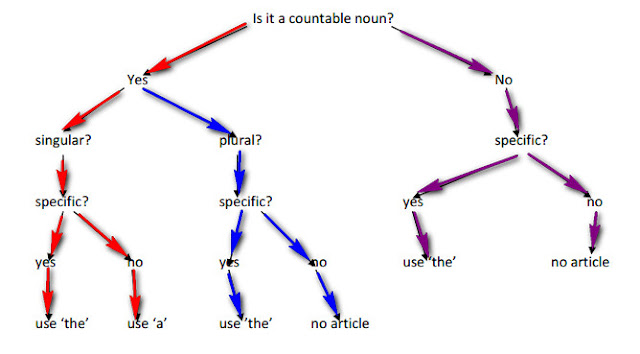Relative clauses-restrictive-non-restrictive relative clauses
Relative clauses
A relative
clause is one kind of dependent clause. It has a subject and verb, but can’t
stand alone as a sentence. It is sometimes called an “adjective clause” because
it functions like an adjective—it gives more information about a noun. A
relative clause always begins with a “relative pronoun,” which substitutes for
a noun, a noun phrase, or a pronoun when sentences are combined.
- A relative clause is part of sentence that describe the person or thing we are talking about.
- - A restrictive relative clause gives necessary information about who or what we are talking about. E.g.: The car which is in from of the house is mine.
- - A non-restrictive relative clause gives additional (extra) information. Non-restri ctive clauses are separated by commas. E.g.: Marrakech, which is called the red city , is the tourism capital of Morocco.
- - If the relative pronoun is followed by a noun or pronoun, the relative pronoun is an object pronoun.
- - Object pronouns can be omitted in defining relative clauses. E.g.: Where’s the car (which) you bought last week?
-
Where’s the car you bought last week?
|
Restrictive relative clause
|
Person
|
Object
|
|
Subject
|
Who,
that
|
Which,
that
|
|
Object
|
Who,
whom, that, ɸ
|
Which,
that, ɸ
|
|
Possessive
|
Whose
|
|
|
Non-restrictive relative clause
|
Person
|
Object
|
|
Subject
|
Who
|
which
|
|
Object
|
Who,
whom
|
which
|
|
Possessive
|
whose
|
Whose,
of which
|


